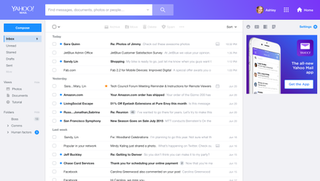The Web 2.0 Suicide Machine is a service that automatically removes private content and friends on social media platforms MySpace, LinkedIn and Twitter, to "commit suicide in social networks", without deleting or deactivating their accounts. [1] [2] [3] [4] [5] The service is part of the non-profit foundation WORM, based in Rotterdam, Netherlands. [2]
The "Web 2.0 Suicide Machine" has, as of January 2010, assisted with more than 1,000 'virtual deaths', ending more than 80,500 friendships on Facebook and removing 276,000 tweets from Twitter. [4]
Rather than deleting user accounts, it removes private content and friendships. To start the deletion process, the user has to provide their login credential for the social network from which they want to be deleted, and then "watch your life passing by and reflect upon your real & virtual friends", while private content and friend relationships are removed. In the end the user is included in a memorial album of all the suicides, with their profile picture, their name and their "last words". [1]
"Web 2.0 Suicide Machine" has listed the functions of which the service is capable thus far as the following: [1]
The Facebook option is no longer available on Web 2.0 Suicide Machine as Facebook sent a cease and desist (C&D) letter on January 6, 2010, demanding that the website stop their actions. [6]
In January 2010, Facebook blocked the service for a short time [3] and sent a cease and desist letter from its lawyers. [2] The service remained up and running, but the website has since ceased operation. Its creators "consider this project as a piece of socio-political net art". [2]
LiveJournal, stylised as LiVEJOURNAL, is a Russian-owned social networking service where users can keep a blog, journal, or diary. American programmer Brad Fitzpatrick started LiveJournal on April 15, 1999, as a way of keeping his high school friends updated on his activities. In January 2005, American blogging software company Six Apart purchased Danga Interactive, the company that operated LiveJournal, from Fitzpatrick.

Yahoo! Mail is an email service offered by the American company Yahoo, Inc. The service is free for personal use, with an optional monthly fee for additional features. Business email was previously available with the Yahoo! Small Business brand, before it transitioned to Verizon Small Business Essentials in early 2022. Launched on October 8, 1997, as of January 2020, Yahoo! Mail has 225 million users.

YTMND, an initialism for "You're the Man Now, Dog", is an online community centered on the creation of hosted memetic web pages featuring a juxtaposition of an image centered or tiled along with optional large zooming text and a looping sound file. Images and sound files used in YTMNDs are usually either created or edited by users. YTMND is generally considered to be a humor website, owing its tone and culture to the original YTMND and its early imitators.
A Google Account is a user account that is required for access, authentication and authorization to certain online Google services. It is also often used as single sign-on for third party services.
Facebook has been the subject of criticism and legal action since it was founded in 2004. Criticisms include the outsize influence Facebook has on the lives and health of its users and employees, as well as Facebook's influence on the way media, specifically news, is reported and distributed. Notable issues include Internet privacy, such as use of a widespread "like" button on third-party websites tracking users, possible indefinite records of user information, automatic facial recognition software, and its role in the workplace, including employer-employee account disclosure. The use of Facebook can have negative psychological and physiological effects that include feelings of sexual jealousy, stress, lack of attention, and social media addiction that in some cases is comparable to drug addiction.
Google Friend Connect was a free social networking site, active from 2008 to 2012. Similar to Facebook Platform and MySpaceID, it allowed users to build a profile to share and update information through messaging, photographs and video content via third-party sites which acted as a host for profile sharing and social exchanges.
Fotki is a digital photo sharing, video sharing and media social network website and web service suite; it is one of the world's largest social networking sites. As an image hosting service, Fotki licenses photo-sharing software for global companies such as Telecom Italia, Alice.it, Sears, Mark Travel, Vegas.com, and Funjet.com, among others.
MobileMe is a discontinued subscription-based collection of online services and software offered by Apple Inc. All services were gradually transitioned to and eventually replaced by the free iCloud, and MobileMe ceased on June 30, 2012, with transfers to iCloud being available until July 31, 2012, or data being available for download until that date, when the site finally closed completely. On that date all data was deleted, and email addresses of accounts not transferred to iCloud were marked as unused.
Digital inheritance is the passing down of digital assets to designated beneficiaries after a person’s death as part of the estate of the deceased. The process includes understanding what digital assets exist and navigating the rights for heirs to access and use those digital assets after a person has died.

X Pro, formerly TweetDeck, is a paid proprietary social media dashboard for management of X accounts. Originally an independent app, TweetDeck was subsequently acquired by Twitter Inc. and integrated into Twitter's interface. It had long ranked as one of the most popular Twitter clients by percentage of tweets posted, alongside the official Twitter web client and the official apps for iPhone and Android.
A recent extension to the cultural relationship with death is the increasing number of people who die having created a large amount of digital content, such as social media profiles, that will remain after death. This may result in concern and confusion, because of automated features of dormant accounts, uncertainty of the deceased's preferences that profiles be deleted or left as a memorial, and whether information that may violate the deceased's privacy should be made accessible to family.
Disqus is an American blog comment hosting service for websites and online communities that use a networked platform. The company's platform includes various features, such as social integration, social networking, user profiles, spam and moderation tools, analytics, email notifications, and mobile commenting. It was founded in 2007 by Daniel Ha and Jason Yan as a Y Combinator startup.
Flipboard is a news aggregator and social network aggregation company based in Palo Alto, California, with offices in New York, Vancouver, and Beijing. Its software, also known as Flipboard, was first released in July 2010. It aggregates content from social media, news feeds, photo sharing sites, and other websites, presents it in magazine format, and allows users to "flip" through the articles, images, and videos being shared. Readers can also save stories into Flipboard magazines. As of March 2016 the company claims there have been 28 million magazines created by users on Flipboard. The service can be accessed via web browser, or by a Flipboard application for Microsoft Windows and macOS, and via mobile apps for iOS and Android. The client software is available at no charge and is localized in 21 languages.

Internet censorship in South Korea is prevalent, and contains some unique elements such as the blocking of pro-North Korea websites, and to a lesser extent, Japanese websites, which led to it being categorized as "pervasive" in the conflict/security area by OpenNet Initiative. South Korea is also one of the few developed countries where pornography is largely illegal, with the exception of social media websites which are a common source of legal pornography in the country. Any and all material deemed "harmful" or subversive by the state is censored. The country also has a "cyber defamation law", which allow the police to crack down on comments deemed "hateful" without any reports from victims, with citizens being sentenced for such offenses.
Since the arrival of early social networking sites in the early 2000s, online social networking platforms have expanded exponentially, with the biggest names in social media in the mid-2010s being Facebook, Instagram, Twitter and Snapchat. The massive influx of personal information that has become available online and stored in the cloud has put user privacy at the forefront of discussion regarding the database's ability to safely store such personal information. The extent to which users and social media platform administrators can access user profiles has become a new topic of ethical consideration, and the legality, awareness, and boundaries of subsequent privacy violations are critical concerns in advance of the technological age.

Google+ was a social network that was owned and operated by Google until it ceased operations in 2019. The network was launched on June 28, 2011, in an attempt to challenge other social networks, linking other Google products like Google Drive, Blogger and YouTube. The service, Google's fourth foray into social networking, experienced strong growth in its initial years, although usage statistics varied, depending on how the service was defined. Three Google executives oversaw the service, which underwent substantial changes that led to a redesign in November 2015.
Criticism of Dropbox, an American company specializing in cloud storage and file synchronization and their flagship service of the same name, centers around various forms of security and privacy controversies. Issues include a June 2011 authentication problem that let accounts be accessed for several hours without passwords; a July 2011 privacy policy update with language suggesting Dropbox had ownership of users' data; concerns about Dropbox employee access to users' information; July 2012 email spam with reoccurrence in February 2013; leaked government documents in June 2013 with information that Dropbox was being considered for inclusion in the National Security Agency's PRISM surveillance program; a July 2014 comment from NSA whistleblower Edward Snowden criticizing Dropbox's encryption; the leak of 68 million account passwords on the Internet in August 2016; and a January 2017 accidental data restoration incident where years-old supposedly deleted files reappeared in users' accounts.

AdGuard is an ad blocking service for Microsoft Windows, Linux, MacOS, Android and iOS. AdGuard is also available as a browser extension.
The advent of social networking services has led to many issues spanning from misinformation and disinformation to privacy concerns related to public and private personal data.
Meta Platforms Inc., or Meta for short, has faced a number of privacy concerns. These stem partly from the company's revenue model that involves selling information collected about its users for many things including advertisement targeting. Meta Platforms Inc. has also been a part of many data breaches that have occurred within the company. These issues and others are further described including user data concerns, vulnerabilities in the company's platform, investigations by pressure groups and government agencies, and even issues with students. In addition, employers and other organizations/individuals have been known to use Meta Platforms Inc. for their own purposes. As a result, individuals’ identities and private information have sometimes been compromised without their permission. In response to these growing privacy concerns, some pressure groups and government agencies have increasingly asserted the users’ right to privacy and to be able to control their personal data.